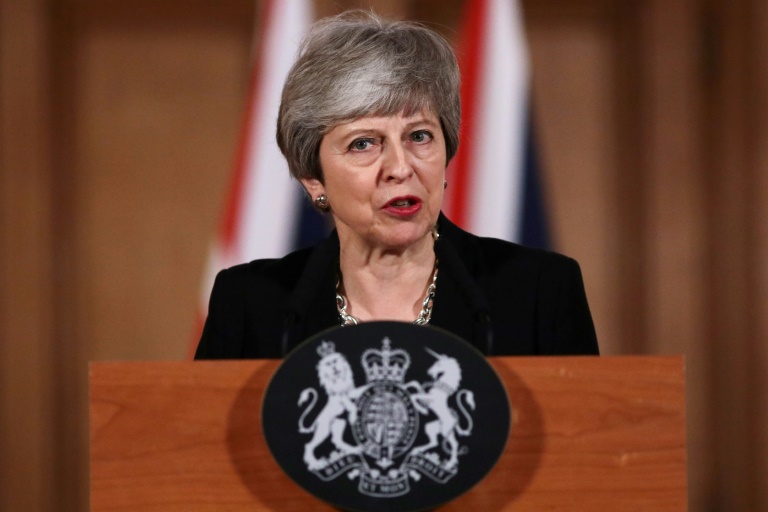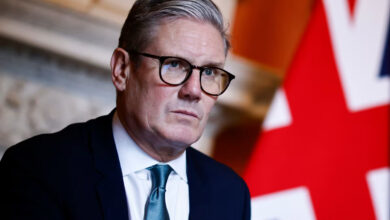
Prime Minister Theresa May will on Monday press ahead with her bid for a Brexit “compromise” with the opposition despite a backlash from her own party, as she attempts to prevent Britain crashing out of the European Union this week.
Talks with the Labour Party are expected ahead of a crucial EU summit that could see Britain leave the bloc as early as Friday, if no further delay is agreed.
Having failed three times to get her withdrawal deal through parliament, May has been locked in talks with Labour to find a modified plan that could command a majority, causing anger within her own party.
“It’ll mean compromise on both sides but I believe that delivering Brexit is the most important thing for us.
“The longer this takes, the greater the risk of the UK never leaving at all. It would mean letting the Brexit the British people voted for slip through our fingers,” she said in a video message released on Sunday.
Labour wants a customs union with Brussels, something May consistently ruled out as it would prevent Britain striking trade deals with the rest of the world.
The talks broke down last week, with Corbyn saying “I’m waiting to see the red lines move”.
But May warned Sunday that “we must deliver Brexit and to do so we must agree a deal”.
Labour is also facing internal division on the issue, with eighty MPs writing to Corbyn urging him to secure a guarantee of a second referendum in any deal.
Leading Brexit supporter Boris Johnson, the favorite to take over once May leaves, said the prime minister’s talks with veteran leftist Corbyn were “so disheartening that you can scarcely believe it”.
“It seems utterly incredible that he has now been invited into Downing Street to negotiate a Brexit deal,” he wrote in his Daily Telegraph column.
“And it is doubly incredible that the government is -– so we are told — willing to accede to his terms.”
‘Utter nonsense’
May’s deal includes the legally-binding terms of Britain’s withdrawal, and also a political declaration outlining the principles of a future relationship.
She has told restive Conservative MPs she will resign before negotiations on future trade ties begin.
Labour could seek to lock the agreement into law, making it much more difficult for May’s successor to change strategy.
But Johnson, one of several contenders for her job, said Britain staying in a customs union, “would make a total and utter nonsense of the referendum result”.
“It would mean that Slovakia or Lithuania –- to say nothing of France or Germany — would have more say over UK trade policy than London.”
May is hoping to have a deal to present to European leaders at an emergency summit on Wednesday, where she must secure another Brexit extension to prevent Britain leaving the bloc at the end of next week with no accord.
She has asked for a delay until June 30, but the decision has to be taken unanimously by Britain and the remaining EU 27 members.
French Foreign Minister Jean-Yves Le Drian told reporters at a G7 meeting in France on Saturday that it was time for the Brexit crisis to end.
“The British authorities and the British parliament need to understand that (the EU) is not going to be able to constantly exhaust itself with the ups and downs of domestic British politics,” he said.
Irish Prime Minister Leo Varadkar said it was “extremely unlikely” a member would veto another extension and revealed he now favored a lengthy delay.
The country’s original March 29 departure date was delayed last month to April 12.
Britain’s parliament is expected later Monday to approve a bill to force the government to delay Brexit.
If passed, May will have to bring a motion to parliament on Tuesday, pledging to request an extension in Brussels the following day and outlining the length of the planned for delay.




